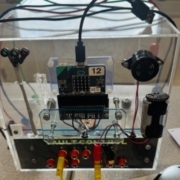Quick Links
Trust Information
Harpenden Secondary Education Trust
Company Number: 09238779
Registered Address: Katherine Warington School, Lower Luton Road, Harpenden, Herts, AL5 5FH
Chair Of Trustees: Jenny Howarth, j.howarth@kwschool.co.uk
Contact Us
Katherine Warington School,
Lower Luton Road,
Harpenden,
Hertfordshire,
AL5 5FH
Telephone: 01582 314777
admin@kwschool.co.uk

